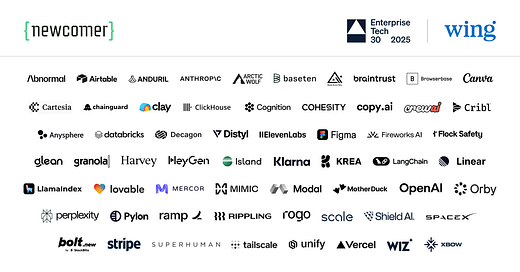Browserbase, Clay, Cursor & Databricks Top Enterprise Tech 30 VC Survey
Wing surveyed top VCs about promising enterprise startups
Now we know exactly which startups venture capitalists are secretly salivating over.
Artificial intelligence startups ran the table this year in Wing’s annual Enterprise Tech 30 venture capitalist survey. The list, which Newcomer is partnering on, showcases the tech industry’s top up-and-coming enterprise startups selected by the ultimate insiders.
The headless browser startup Browserbase took the coveted top spot on the early stage list, followed by AI infrastructure startup Modal Labs, multi-agent platform CrewAI, text-based coding tool Lovable, and open source orchestration framework startup LlamaIndex.
It’s a year where agents, coding tools, AI infrastructure plays, and generative AI-native applications have caught investors’ interest. Many of these companies are generating revenue quickly with lean teams.
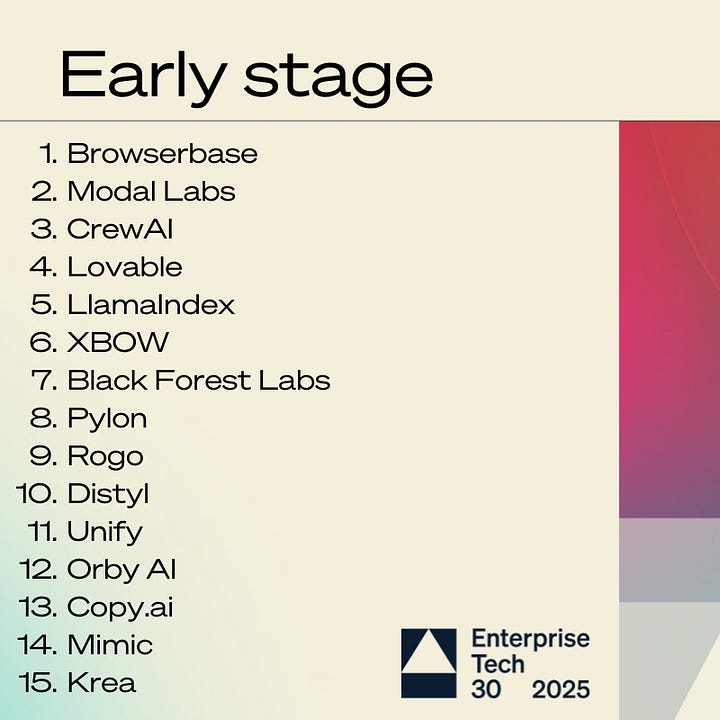
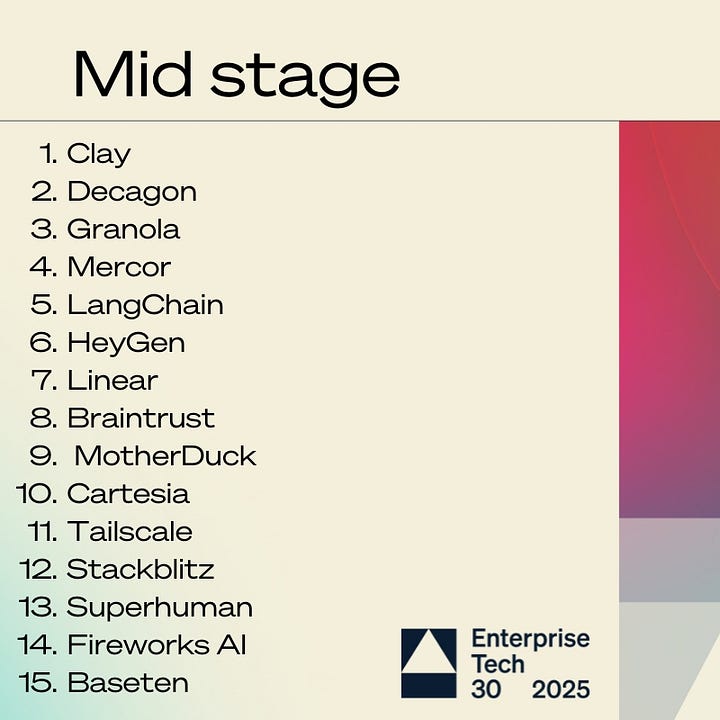
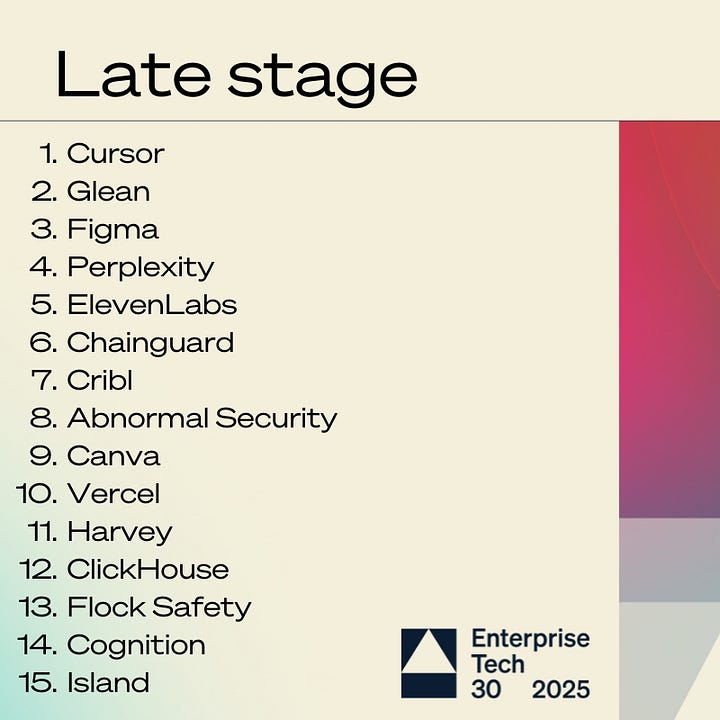
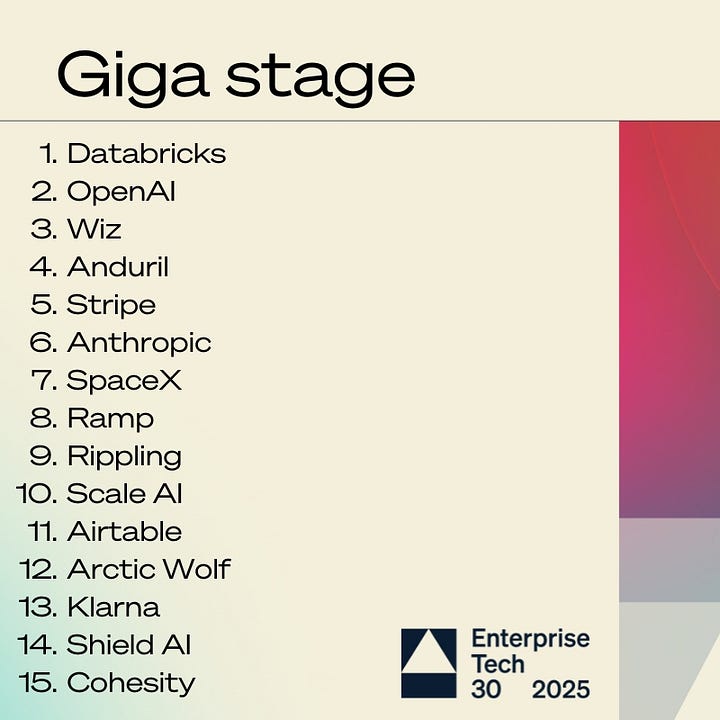
The ET30 list — now a misnomer as it has expanded to 60 promising startups across early, mid, late, and giga stages — is compiled by asking top venture capitalists to rank the 10 startups that they see as the most promising. The venture capital firm Wing, which compiled the list, limits how many votes can come from a VC’s own portfolio to make sure they’re not tipping the scales too much in their favor.
VCs are instructed, “Vote for the most promising companies, in your opinion, as an expert on enterprise tech startups.”
On the mid stage list, AI go-to-market startup Clay topped the rankings, with agentic customer service company Decagon, voice-to-text startup Granola, recruiting startup Mercor, and AI software framework company LangChain rounding out the top five.
Of course, the more money a startup has raised, the stiffer the competition. Still, the standouts find a way. Having raised too much funding to qualify for the early stage list, Decagon, Mercor, and Granola nabbed their first ET30 appearances this year, jumping straight to the top rungs of the mid stage list instead. And coding assistant Cursor topped the late stage list after never before making an appearance.
Early stage includes startups that have raised up to $35 million. Mid stage includes between $35 million and $150 million. Late stage includes between $150 million and $1 billion. Giga stage represents companies that have raised $1 billion or more.
You can see the AI wave coming for enterprise startups if you look at the early stage list in particular, which is dominated by generative AI companies. “The canary in the coal mine is obviously the early stage,” said Wing founding partner Peter Wagner. “This is a pretty good spotlight as to where things are going.”
Even as I track AI startups pretty closely, Browserbase’s ascendancy took me by surprise. So I had the company’s CEO, Paul Klein, on the Newcomer Podcast Friday to hear the story. In short, he’s making it easy for AI agents to engage with the web.
This year, of the 60 companies, 21 appear to be building some kind of application, 14 are creating AI models or tools, 8 are in cybersecurity, 6 are in business intelligence or data integration, 5 create developer tools, 3 are in fintech, and 3 work in defense or aerospace.


